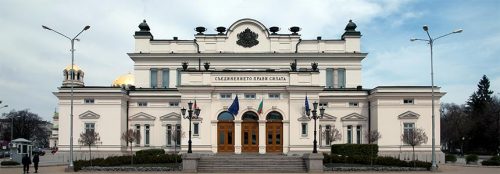
The speaker of the Serbian National Assembly announced on the 2nd of March that a snap presidential election would be held on the 2nd of April. If needed, the second round of voting is planned for the 16th of April. Read more about the structure and landscape of Serbian politics in the run up the Presidential elections.

Codetermination is a corporate governance system which allows for greater employee participation in the running of a company. The system has a long history in Germany and is deeply entrenched in the country’s corporate culture. Read on to learn more about codetermination in the digital era. Continue reading
The Bulgarian Parliament Elections have taken place and the preliminary results are in. For the third time in four years, Bulgarians have gone to the polls. The election was triggered by the resignation of the Prime Minister and the subsequent difficulties in forming a coalition government. Read all about the preliminary results and implications. Continue reading

Here you can find everything you need to know about the Bulgarian Parliamentary election. In the run-up to the parliamentary election in Bulgaria, we go through the core aspects of the political system in Bulgaria, the political challenges the country faces, and the impact that this election could have on the EU’s poorest state.
Continue reading

Last week we had a look at some new and innovative forms of flexible working arrangements facilitated by digital technologies. Whilst such flexible working arrangements bring with them many benefits, they can also have drawbacks. This week we examine both the pros and cons of these digital working arrangements. Continue reading

Digital working arrangements are becoming increasingly common in everyday life. It’s no secret that the planet is becoming increasingly interconnected with recent digital innovations changing the way we work. Companies and employees alike are seeing the value in flexible working arrangements facilitated by digital technologies. In this blog, we take a closer look at flexible, digital working arrangements. Continue reading
Whilst primarily known for its tulips, canals, and dairy products, in recent months the Netherlands has been making the news for its upcoming general elections. Every four years, citizens make their way to the ballot box to vote on who will run the Northern European nation. Don’t let the country’s minute size fool you – with over 17 million people living in a country that boasts the world’s 25th biggest economy, this election could have ramifications both at home and abroad. But how do these elections work? And more broadly, how does the government and parliament in the Netherlands function?



